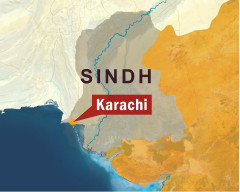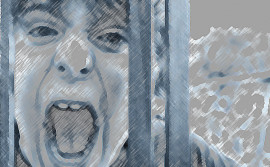
With no dissenting votes, the House voted to create an annual report to assess every country's history of child abductions and to require President Barack Obama to take action against nations with poor records.
Potential US measures include refusing export licenses for American technology, cutting development assistance and putting off scientific or cultural exchanges. The president would have the right to waive the punishment.
Representative Chris Smith, the author of the legislation, said it would put the force of the US government behind solving the more than 1,000 cases each year in which US children are taken overseas, generally by a foreign parent after separation from an American partner.
"It is a full-court press to finally elevate this issue, where American children's human rights are being violated with impunity," Smith told reporters.
"Right now, it's like other human rights abuses, maybe on page five as an asterisk" in talks between the United States and other countries, he said.
Smith, a Republican from New Jersey, previously led legislation that set up annual reports on human trafficking and religious freedom, which have often caused discomfort for countries deemed to be lagging behind.
The child abduction legislation still needs approval in the Democratic-led Senate, but Smith voiced confidence at passage as the bill has been revised over several years to ensure support of both parties. The State Department had initially voiced concern at proposals to impose outright economic sanctions over child abductions.
By far, the greatest number of abduction cases takes place in Japan, the only major industrialized nation that has not ratified the 1980 Hague convention that requires countries to send abducted children back to the countries where they usually live.
Japanese courts virtually never grant custody to foreign parents or fathers.
Paul Toland, who served in the US Navy in Japan, said that his daughter Erika was put in the care of her maternal grandmother and that he has no visitation rights after the girl's mother committed suicide.
"For me, this will be my 11th consecutive Christmas without my daughter," he told reporters.
In the wake of persistent US and European criticism, Japan's parliament took key steps this year to join the Hague treaty. But critics say that the decision will not address past cases.
The House legislation calls on the United States to seek legal agreements with all nations not party to the Hague convention to lay out ways to return children within six weeks after abduction cases are reported to authorities.
Smith named the bill after David Goldman, who succeeded in bringing his son Sean back to the United States after a five-year fight with Brazilian courts.
"We won't stop until we get the children home, one by one, child by child," Goldman said.
Parents of children in countries including Brazil and Argentina said that they often had no recourse, even if individual officials in foreign countries are sympathetic to their cases.
Arvind Chawdra, whose two children were abducted to India, said he had no other option but to take out a newspaper advertisement because he does not know where they are.























1713957765-0/BeFunky-collage-(1)1713957765-0-270x192.webp)











1713853507-0/MalalaHilary-(2)1713853507-0-270x192.webp)








COMMENTS
Comments are moderated and generally will be posted if they are on-topic and not abusive.
For more information, please see our Comments FAQ